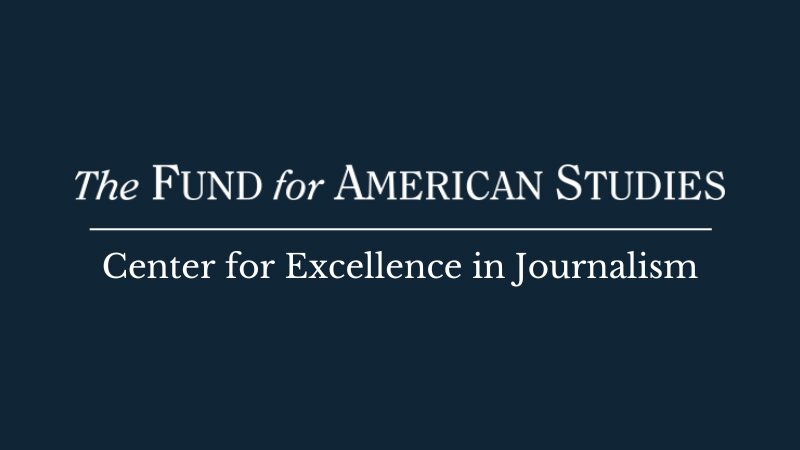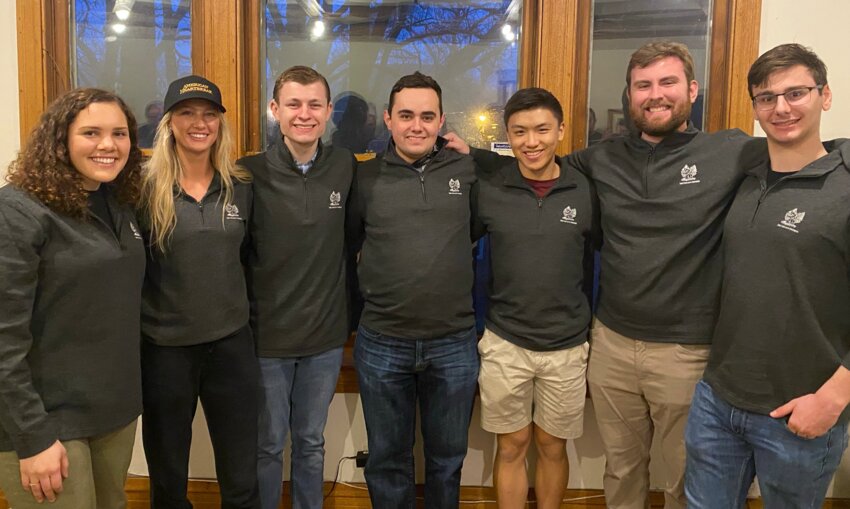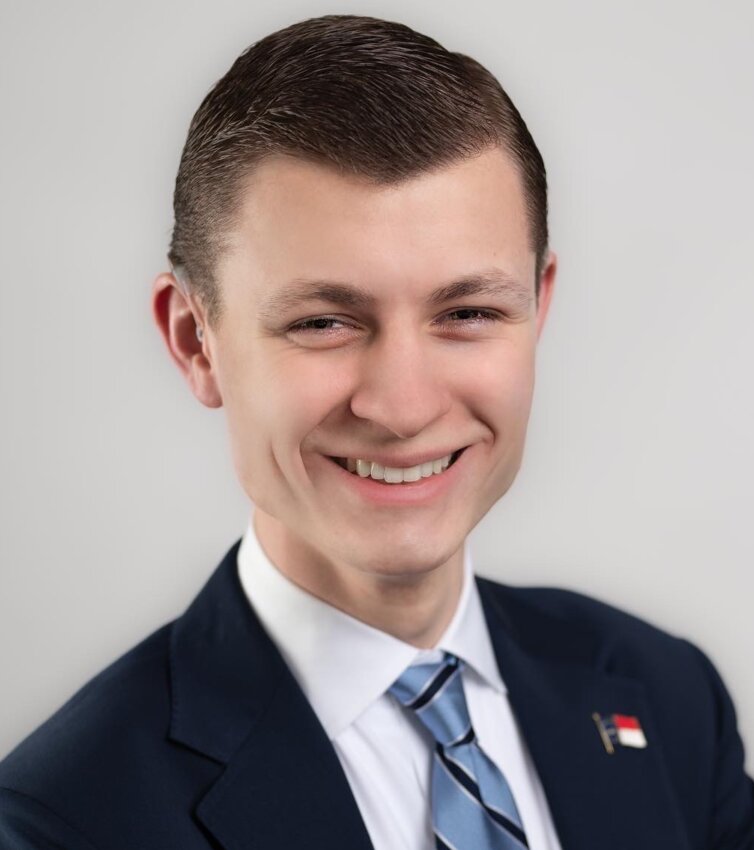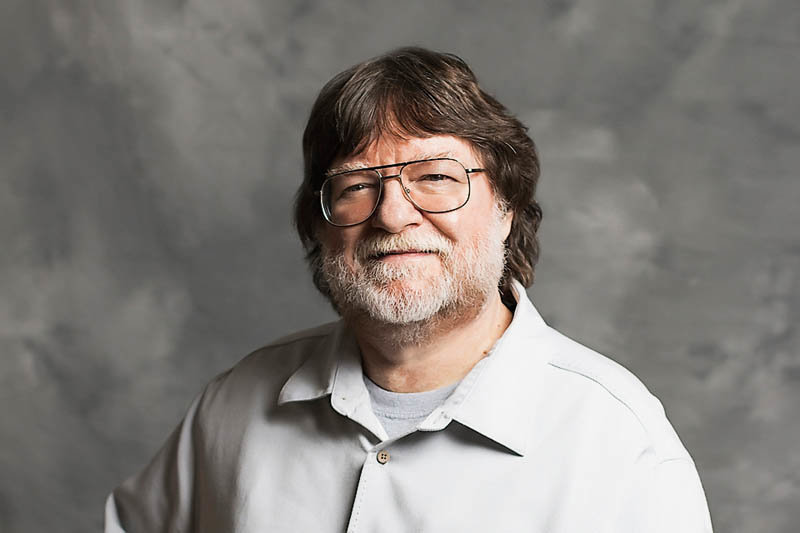
Too often, the media focuses on the demise of newspapers and the expanding news deserts nationwide. It is certainly a transition of note, but another transition that deserves more coverage is the effort to recruit and train the next generation of journalists. How news is delivered is changing, but the journalist's role will remain critical to gathering, writing and providing editorial commentary about the news.
The Center for Excellence in Journalism (CEJ) is a new program from The Fund for American Studies (TFAS). It will become active on a select number of university campuses beginning with the fall 2023 academic semester through its Student Journalism Association. Students who want to improve their general and journalism writing skills will be invited to participate in training sessions and seminars. CEJ will also support independent collegiate publications with grant funding to expand and enhance their presence on campus and with regional conferences for their staff to help them improve operational and editorial management.
Since its founding in 1967, TFAS has promoted a conservative/libertarian perspective, and its many programs provide opportunities for emerging journalists who share that perspective to bring their voices to the body politic. TFAS also promotes a journalistic ethic many in media and news share regardless of their political leanings — more ideological diversity, honesty and objective reporting.
TFAS has provided many learning opportunities for high school and college students for years. The Joseph Rago Memorial Fellowship for Excellence in Journalism and the Robert Novak Journalism Fellowship Program are prominent among these. Named for the former editorial board member at The Wall Street Journal, the Rago Fellowship is a nine-month internship with the Journal's editorial team that also includes a monthly salary for recent college and journalism school graduates and young journalists with limited experience. Named in honor of the well-known journalist Robert Novak when he died in 2009, the Novak Journalism Fellowship program provides young journalists with a grant to support them for a year so they can work on long-form reporting projects.
Ryan Wolfe, manager of TFAS’s continuing education programs for the past two years, has been named the first director of CEJ. Previously, he was the director of the Collegiate Network at the Intercollegiate Studies Institute.
Since spring 2023, Wolfe, with the assistance of others at TFAS, has created the structure for CEJ programs, which will first work with campus publications and students at approximately 15 universities. Most are described as elite institutions, such as Georgetown, Stanford, Michigan, Notre Dame and the University of Chicago.
“The reason we’re focusing on these institutions is we want to bring talented young people into the journalism field, and there is so much talent at these schools that deserves to be supported. It’s a learning experience for us to determine how best to help these students pursue a career in journalism, how to help the selected student publications be more successful and to provide professional development for their student journalists,” said Wolfe.
Because TFAS operates as a free-market organization, Wolfe and his team have created an incentive-based grant program for on-campus publications. To qualify for funding, each publication must fulfill specific requirements, such as staff size, publishing a particular number of articles, original reporting and recruiting freshmen.
“Publications will submit their business plan, budget and other operational details via a membership application. We’ll ask new publications to provide more information, and they will receive a more in-depth review. I think this is an innovative way to help student publications improve by giving them firm goals and putting some dollars behind it,” Wolfe added.
Wolfe and his team will travel to these campuses to train students primarily in basic reporting techniques. Many of these students aren't journalism majors, so they need to learn how to report and structure a story, write a lead, conduct interviews and adopt the ethics of good reporting. Some of these students and leaders of the student publications will attend regional conferences for additional training, including improving operations and learning investigative reporting and opinion writing.
Declan Hurley, a third-year student at the University of Chicago and the editor-in-chief of the campus publication, the Chicago Thinker, is one of the students who will be participating in the CEJ programs. Hurley is studying economics and history and expects to start law school in the fall of 2024.
“I’d like to be a corporate litigator. I’m interested in journalism, at least as a college hobby, to strengthen and reinforce my writing and argumentative skills, to convince people of points of view and how to recall facts accurately as they occur. All are incredibly important for the law and are reinforced by good journalism training, even for an amateur,” Hurley said.

Hurley first met Wolfe while he was at the Intercollegiate Studies Institute. He approached Hurley and asked if the Chicago Thinker would be interested in joining the Student Journalism Association and participating in the CEJ program.
“Currently, we’re in the process of securing grant funding from the association for the fall quarter. It will provide additional resources to hold meetings and fund journalistic efforts, such as when we reported on crime in the surrounding community during the winter of 2022. It was wonderful to see how people engage with this and other issues. They are stakeholders in the university, and our reporting is eminently relevant to them,” Hurley said.

“I recommend any college student to obtain some journalism training to improve their writing by working with an editor. That constructive feedback can hurt initially, but it’s incredibly helpful. At the Chicago Thinker, we strive to share good journalism because good writing will attract more students to this opportunity,” Hurley added.
Wolfe emphasized many CEJ students will also have opportunities to participate in other TFAS programs. Ten students will be invited to TFAS's eight-week academic internship in Washington, D.C, where they will be provided with housing and choose a unique course of study and experiences.
“I envision CEJ working across departments at TFAS. Some will be selected for the Rago or Novak Fellowships, and some will join an internship program. Others may join a group of other students to travel to Prague, Czech Republic, for our European Journalism Institute program, co-hosted with The Media Project and accredited through Anglo-American University. It is weeklong training in religion reporting and associated topics; TFAS also has similar international programs in Asia and Santiago, Chile,” Wolfe said.
As CEJ develops its website and an expanding online presence, Wolfe invites any publications to contact him for collaborative opportunities, such as listing job openings and providing access to the TFAS/CEJ talent network.
 Bob Sillick has held many senior positions and served a myriad of clients during his 47 years in marketing and advertising. He has been a freelance/contract content researcher, writer, editor and manager since 2010. He can be reached at bobsillick@gmail.com.
Bob Sillick has held many senior positions and served a myriad of clients during his 47 years in marketing and advertising. He has been a freelance/contract content researcher, writer, editor and manager since 2010. He can be reached at bobsillick@gmail.com.
Comments
No comments on this item Please log in to comment by clicking here